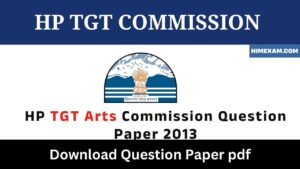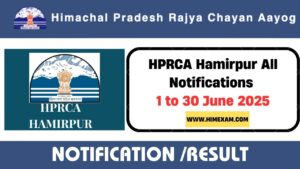General Studies Question With Answer Set-13
||General Studies Question With Answer Set-13||GS Question With Answer Set-13||General Studies Questions for has||General Studies Questions for hpas||
Question. “There is a need for simplification of procedure for disqualification of persons found guilty of corrupt practices under the Representation of Peoples Act.” Comment (Answer in 150 words)
Ans. The Representation of the People Act (RPA) was originally passed in 1951 but amended on several occasions. Along with Conduct of Election Rules, 1961 it governs the organisation of elections in India. Section 8A of the Representation of the People Act, 1951 deals. with the “disqualification on ground of corrupt practices.” Any form of gratification for electors for voting or refraining from voting, and for the candidates. for withdrawing or not withdrawing nomination is considered as a corrupt practice.
Disqualification of MPs and MLAs
- Section 8 (3) of the Act states that if an MP or MLA is convicted for any other crime and is sent to jail for 2 years or more, he/she will be disqualified for 6 years. from the time of release. Even if a person is on bail after the conviction and his appeal is pending for disposal, he is disqualified from contesting an election.
- Section 8(4) allowed convicted MPs, MLAs and MLCs to continue in their posts, Provided that they appealed against their conviction/sentence in higher courts within 3 months of the date of judgment by the trial court. The Supreme Court in July 2013 struck down section 8(4) of the RPA, 1951 and declared it ultra vires and held that the disqualification takes place from the date of conviction.
Simplification of Procedure for Disqualification
- Limited Judicial Interpretation The judicial interpretation of 8(3) of the Act has not been very satisfactory. An order of remission does not wipe out the conviction. For actual disqualification, what is necessary is the actual sentence by the court. It is not within the power of the appellate court to suspend the sentence; it can only suspend the execution of the sentence pending the appeal. The suspension of the execution of the sentence (imprisonment of not less than two year) does not remove the disqualification, when a lower court convicts an accused and sentences him, the presumption that accused is innocent comes to an end.
- Different Standards for Different Offences Section 8 of the Representation of Peoples Act sets different standards for different offences. According to Section 8(3) a person convicted of any offence and sentenced to imprisonment for not less than two years (other than the offences referred to in section 8(1) and (2) shall be disqualified from the date of such conviction and shall continue to be disqualified for a further period of six years since his release. There has been controversy with regard to the beginning of disqualification on the ground of conviction. A person convicted for an offence is disqualified for being a candidate in an election. •
- Pendency of Cases As per Section 8, a person is disqualified from contesting election only on conviction by the court of law. Due to the huge pendency of cases in courts, conviction is getting delayed. There is no clear provision for follow-up action in the event of candidates filing false affidavits.
- Limitation of Election Commission of India (ECI) ECI has no power to call off elections based on electoral offences as these are tried in HC which leads to legal hassles and low conviction. Even in the cases of corrupt practices which comes under the ECI, it doesn’t include provisions of paid media, hate speech, money power etc. Representation of Peoples Act has not been successful in curbing the money and muscle power. Muscle power is not even defined by the act. Money limits have often been breached using different means. For example, donations were split into amounts of less than 20,000 for evading reporting.
Measures for Simplification of Procedure for Disqualification under the Representation of Peoples Act
- Setting up a Special Court There is a need of setting up special courts for trying the cases of criminalization of politics. Keeping in view the ever deteriorating standards of politics, it would be more desirable to try all cases of politicians by special courts. It will help maintain sanctity and purity of elections.
- Legal backing to MCC Model Code of Conduct (MCC) is not legally enforceable and often parties do not agree voluntarily on what is/are ethically right and wrong. There is a need to provide a legal backing the MCC. •
- Cap on Corporate Funding There is a need to put a cap on funding by big corporate houses. Such donations should be made public as is the case in the US. Also, law could be enacted to prohibit political parties giving any undue benefits to corporates.
The entry of criminals in election politics must be restricted at any cost. If it is not checked, it will erode the system totally. The dearth of talented persons in politics may collapse the country internally as well as externally. The parliament has taken efforts by amending the laws, such as, IPC and the RP Act but the exercise has proved futile. The Supreme Court of India has also made efforts to check the evil but the problem remains unabated.
Join Our Telegram Group :- Himexam









